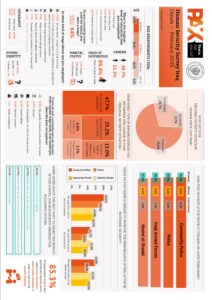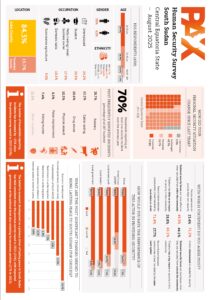HSS 2017: Summary findings from Jonglei, South Sudan
The Human Security Survey (HSS) is a unique survey methodology developed by PAX, that includes a series of complementary activities, including population-based research, community engagement, and advocacy. The objectives of the HSS are: 1) to increase understanding of local human security experiences, perceptions, trends and priorities; 2) to enhance the ‘claim-making capacity’ of civilians to hold security providers and power brokers to account; and 3) to guide and inform a wide variety of stakeholders who have an ability to impact protection issues through evidence-based advocacy at local and international levels. PAX currently implements the HSS in South Sudan and Iraq.
The underlying rationale for the HSS is that by strengthening the voice and agency of civilians on protection strategies, security policies and how they are implemented, the resulting protection practice will be more reflective of and responsive to local needs, priorities, and capacities. In order to achieve this, the HSS seeks to create or leverage opportunities for civilians to participate in security dialogues at the community level, where practical decisions by military, local government, police, traditional leaders, and non-state armed actors deeply affect civilians’ day-today lives.
The HSS also provides a means of connecting local perspectives with national and international policy makers, diplomats and security actors such as the UN peacekeeping mission in South Sudan (UNMISS) by providing valuable, first-hand information about the experiences and perspectives of conflict-affected communities. The survey itself is therefore best seen as a means to an end, with the ultimate aim being to facilitate more effective protection of civilians’ strategies in South Sudan.
About this report
Date of publication:
Dec 26, 2017
Publisher:
PAX Protection of Civilians
Period:
2017


